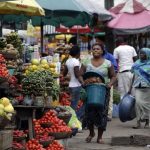Overview
The Nigeria Police Force (NPF) operates under a well-defined hierarchical structure that governs the chain of command and responsibilities within the organization. Understanding the police ranks in Nigeria is essential for anyone seeking to join the force, follow its operations, or interact with its personnel.
This guide outlines the full list of ranks from the highest-ranking officer to the entry-level positions, including their respective roles.
Commissioned Officers Ranks
These are the senior officers in the NPF, responsible for high-level administrative, strategic, and operational duties.
- Inspector-General of Police (IGP)
- The highest-ranking officer in the Nigeria Police Force.
- Appointed by the President.
- Oversees the entire police structure nationwide.
- Deputy Inspector-General of Police (DIG)
- Assists the IGP in managing specific departments such as operations, logistics, or investigations.
- Assistant Inspector-General of Police (AIG)
- Oversees police operations in designated zones, each comprising several state commands.
- Commissioner of Police (CP)
- Heads the police force in a state or the Federal Capital Territory.
- Manages all personnel and operations in that command.
- Deputy Commissioner of Police (DCP)
- Second in command at the state command level.
- Assists the CP in daily operations and administrative tasks.
- Assistant Commissioner of Police (ACP)
- Supports the DCP and may be responsible for specific departments such as administration or operations.
- Chief Superintendent of Police (CSP)
- Senior field officers in charge of divisional or regional duties.
- Superintendent of Police (SP)
- Manages divisions and oversees daily operations.
- Deputy Superintendent of Police (DSP)
- Assists the SP in administrative and fieldwork duties.
- Assistant Superintendent of Police (ASP)
- The first entry-level rank for commissioned officers.
- Supervises rank-and-file officers.
Non-Commissioned Officers Ranks
These are operational personnel handling on-the-ground law enforcement duties.
- Inspector of Police
- Senior non-commissioned officer with supervisory responsibilities at the divisional level.
- Sergeant Major
- Oversees other Sergeants and ensures discipline among lower-ranking officers.
- Sergeant
- Handles supervisory roles during patrols and station duties.
- Corporal
- Assists Sergeants in managing constables and daily field activities.
- Constable
- The lowest rank in the NPF.
- Entrusted with basic law enforcement, patrol, and public order duties.
Training and Promotion
Officers are promoted based on performance, years of service, examinations, and availability of positions. Promotions for commissioned officers are overseen by the Police Service Commission (PSC), while internal mechanisms handle non-commissioned ranks.
Conclusion
The ranking system in the Nigeria Police Force ensures a clear chain of command, enhances accountability, and defines career progression. For anyone aspiring to serve in law enforcement or simply looking to understand how policing works in Nigeria, this structured hierarchy is foundational.







